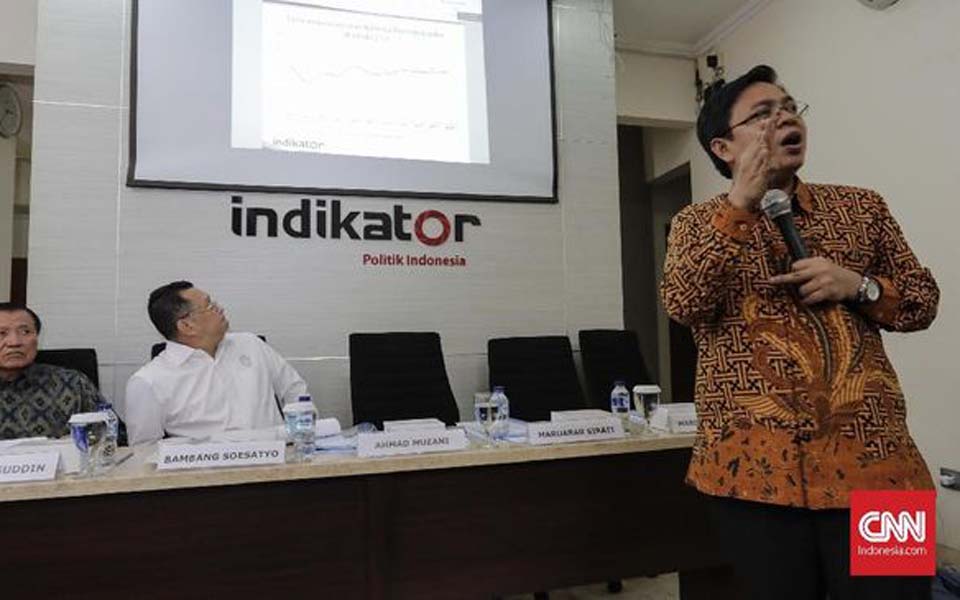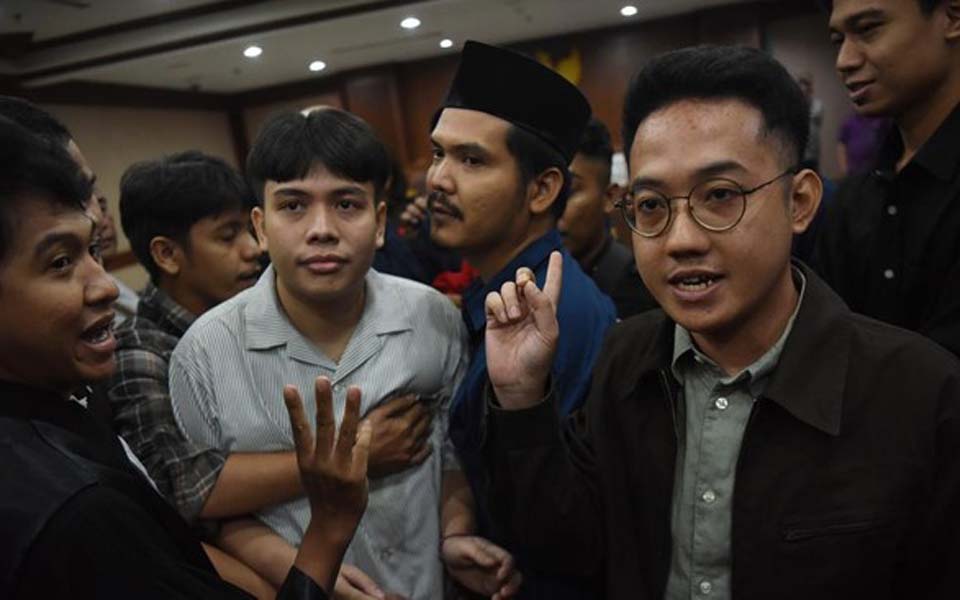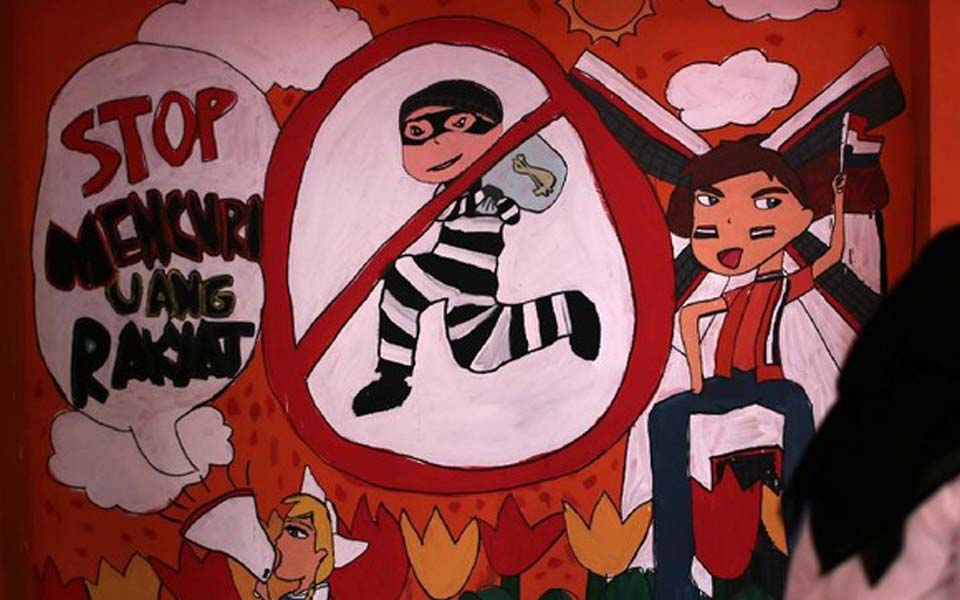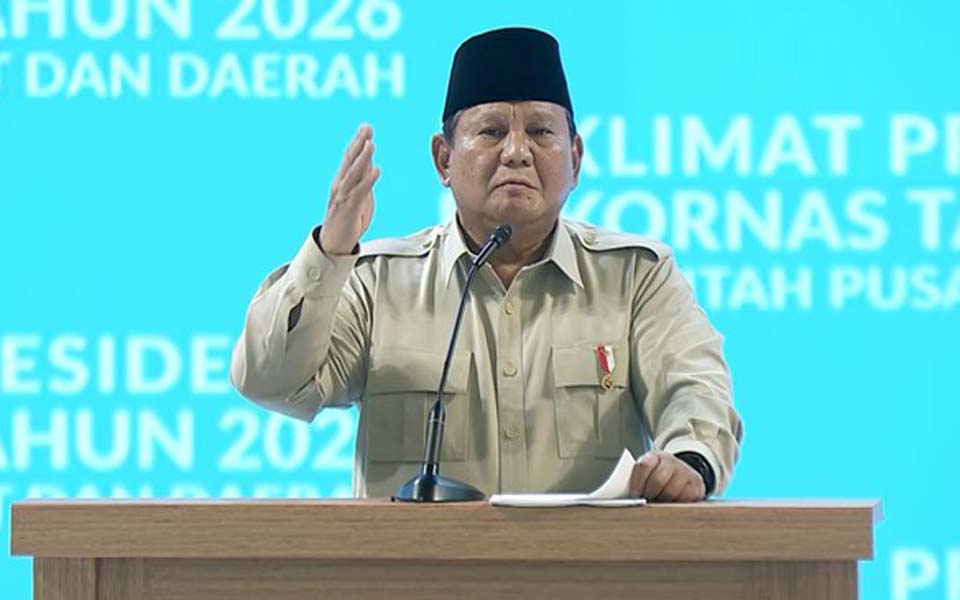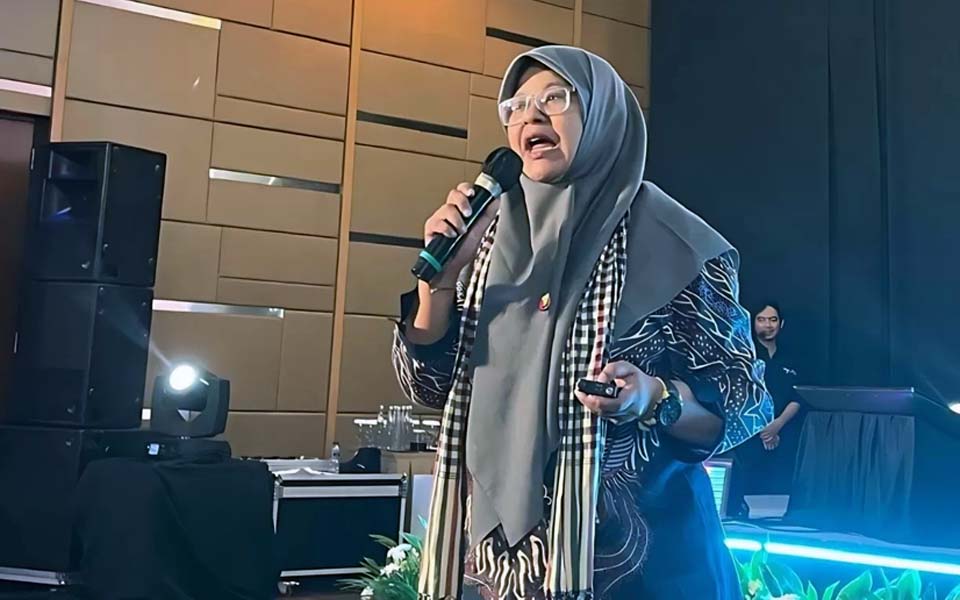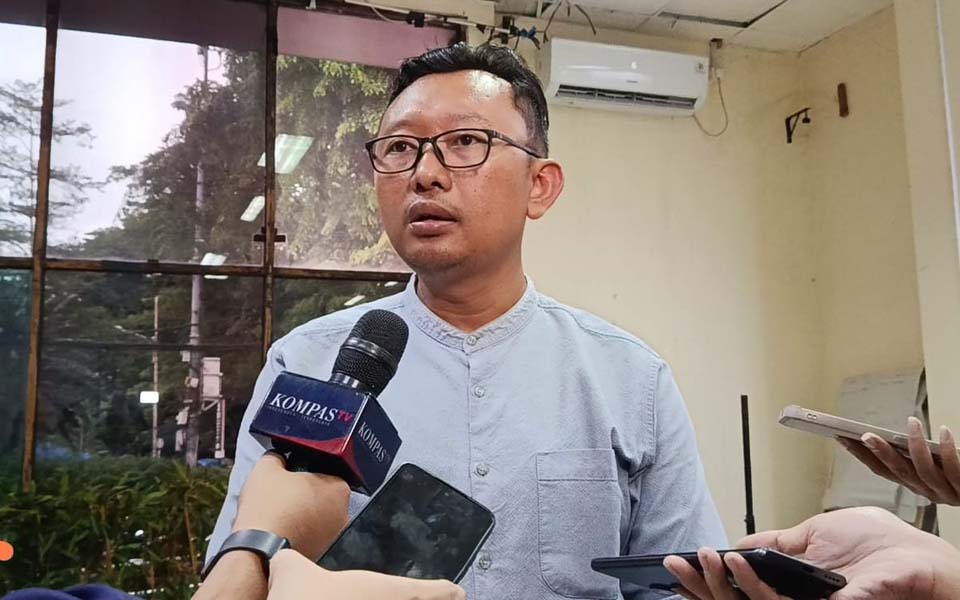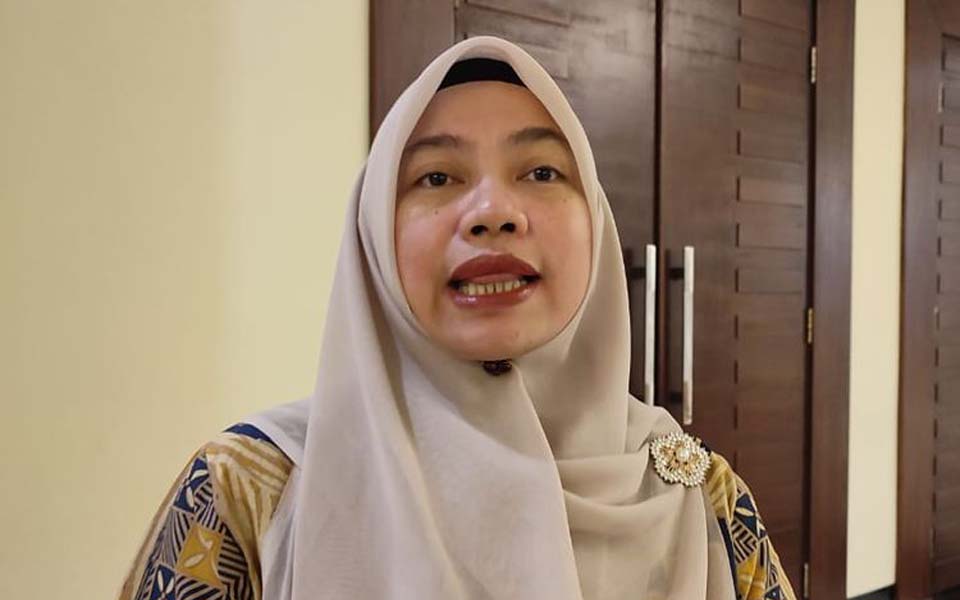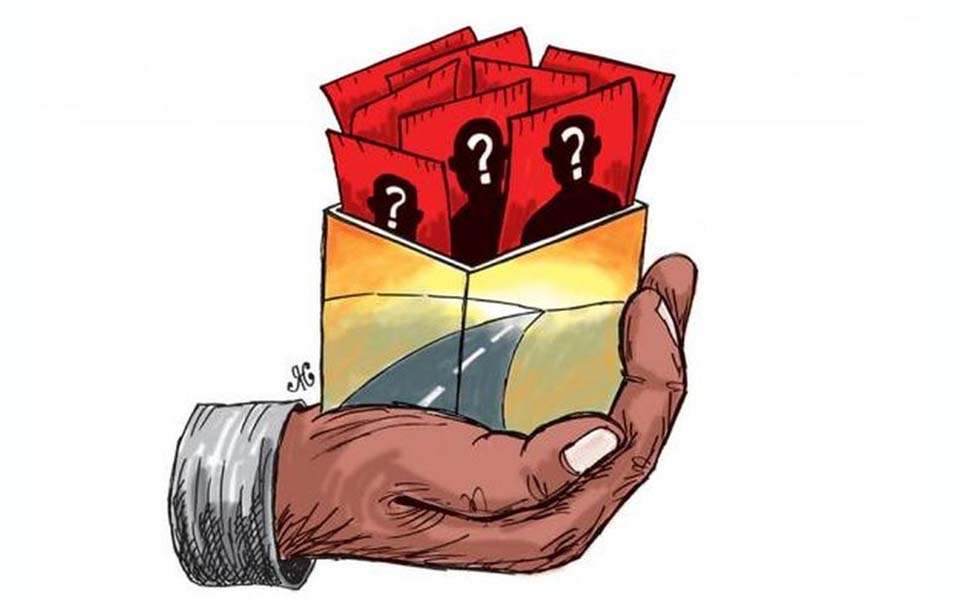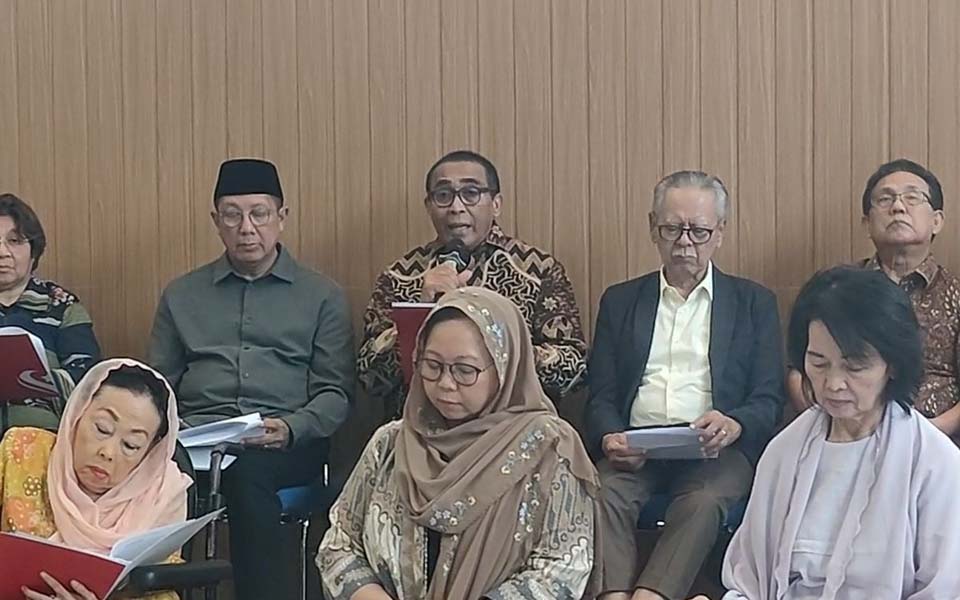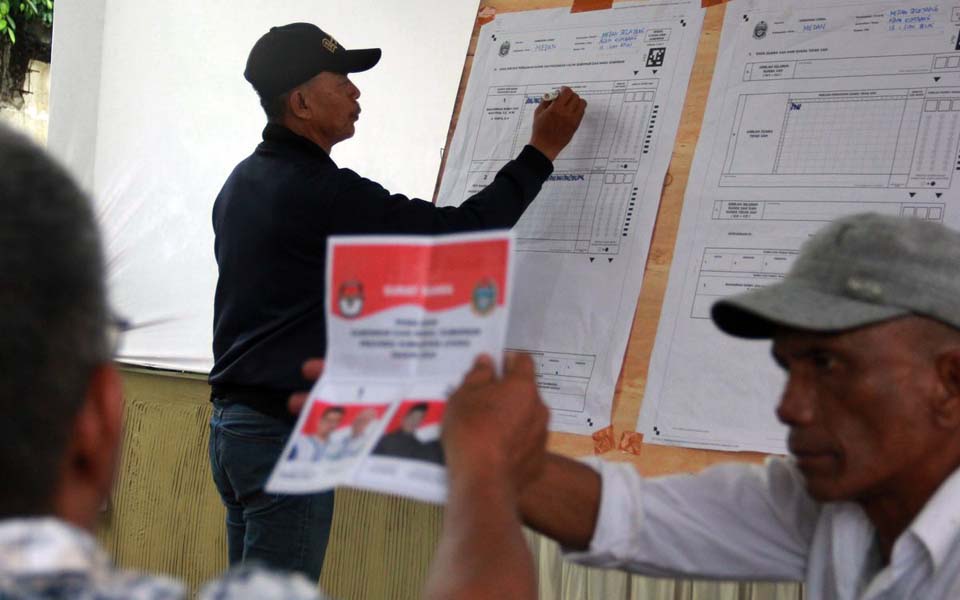Jakarta – The results of an Indikator Politik Indonesia survey shows that the majority of young people in Jakarta (DKI) are dissatisfied with the performance of President Joko "Jokowi" Widodo.
Indikator Politik Indonesia Executive Director Burhanuddin Muhtadi said that 61.7 percent of young people in Jakarta are dissatisfied with Widodo while only 35.8 percent were satisfied with his performance.
"Young people in DKI tend to be dissatisfied", said Muhtadi during a virtual discussion on Sunday March 21.
The highest levels of satisfaction with Widodo were found in Central and East Java. In Central Java 86.2 percent of young people were satisfied with Widodo's performance and in East Java the figure stood at 70.6 percent.
Out of the 1,200 respondents surveyed, 65.4 percent said they felt very or quite satisfied with Widodo. Muhtadi said this is comparable with the findings of a public survey in February. "[The level of] satisfaction is comparable with public opinion in general, among young people", he said.
The survey also found that 55.4 percent of young people trust Widodo to overcome the Covid-19 pandemic. "Jokowi is considered to be able to overcome the Covid-19 epidemic with around 55 percent who trust or very much trust him to do this", said Muhtadi.
Muhtadi explained that the majority of young people were very or sufficiently satisfied that Health Minister Budi Gunadi Sadikin can work to overcome the pandemic.
Muhtadi added that young people consider the most important issues which need to be addressed at the moment is the Covid-19 pandemic, economic management, poverty, unemployment and corruption.
He said that 26.3 percent young people believe that dealing with the pandemic is the most important problem followed by economic growth with 24.9 percent and poverty with 12.1 percent.
Muhtadi added that the young people's level of confidence that Widodo can overcome the pandemic is not very different from a national survey in February involving the general population. Nationally, as many as 56.5 percent of people are confident that Widodo can deal with the Covid-19 pandemic.
ITE Law needs revision
The survey also showed that the majority of young people believe that the Information and Electronic Transaction Law (UU ITE) needs to be revised.
"If we ask should it be revised or not, 57.3 percent of young people believe its needs to be revised and only 24.1 percent say it doesn't need to be revised", said Muhtadi.
Muhtadi said that most young people believe that people reporting each other to the police based on the ITE Law is not good for democracy. Only young ethnic Javanese youth and young people from Madura, East Java, consider this to be okay.
"So people reporting each other [to police] is perceived by young people as not being good", said Muhtadi.
Less democratic
The survey also found that as many as 40 percent of young people believe that Indonesia has become less democratic.
Muhtadi said that this figure is higher than a survey conducted by Indikator Politik Indonesia several weeks ago which posed a similar question to the general public. "(The national survey was) 27.8 percent, (the youth survey was) 40 percent", he said.
Muhtadi explained that 35.7 percent of young people believe that democracy in Indonesia has remained the same while only 15.5 percent believed that Indonesia has become more democratic. The remainder, 8.8 percent, did not answer.
Nevertheless, 52.1 percent of young people are quite satisfied with the state of democracy in Indonesia although only 0.7 percent are very satisfied, 36.7 percent are dissatisfied, 3.6 percent are very dissatisfied and 6.9 percent did not answer.
In general, said Muhtadi, the Indonesian public believes that democracy is the best administrative system to be applied in Indonesia. "76 percent believe in democracy although what is incomplete is the right administrative system", he said.
Dissatisfaction with politicians
The survey also found that 64.7 percent of young people believe that the political parties or politicians in Indonesia are not very good or no good at all at representing the public's interests.
"If asked about their attitudes, their assessment of politicians, in general young people are not very convinced that politicians represent the public's interests", said Muhtadi.
Muhtadi said that 12 percent of young people believe that the political parties and politicians absolutely do not represent the public's interests while 52.7 percent believe that they are not very good at this.
The remainder, some 25.7 percent, believe they are quite good, 0.3 percent believe they are very good and 9.4 percent did not know or did not answer.
TNI most trusted institution
The survey also found that the TNI (Indonesian military) was the institution most trusted by young people. 12 percent said they trusted the TNI very much, 77 percent had sufficient trust and 9 percent trust the TNI only slightly.
In second place is President Widodo, with as many as 13 percent of young people saying they trust him, 72 percent have sufficient trust and 21 percent only a little trust.
Next in third place is the Indonesian police (Polri) who are trusted by 7 percent of young people with 67 percent trusting them sufficiently and 21 percent having little trust in the police.
In fourth place is the Corruption Eradication Commission (KPK) with 5 percent of young people saying they trust the KPK very much, 69 percent having sufficient trust and 20 percent little trust.
Next in order of trust is the Attorney General's Office in fifth place, followed by the mainstream media, social media, the House of Representatives (DPR) and the political parties in ninth place.
"The most highly trusted (institution) is the TNI, then the president, then the police, and only then the KPK. These are the four highest", said Muhtadi.
The survey used a random sampling method of 1,200 respondents between the ages of 17-21 years selected randomly. The survey had a margin of error of around 2.9 percent and a confidence level of 95 percent.
[Abridged translation by James Balowski based on four articles by CNN Indonesia on March 21 and 22. The original title of the lead article was "Survei: Mayoritas Anak Muda DKI Tak Puas Kinerja President Joko "Jokowi" Widodo".]





